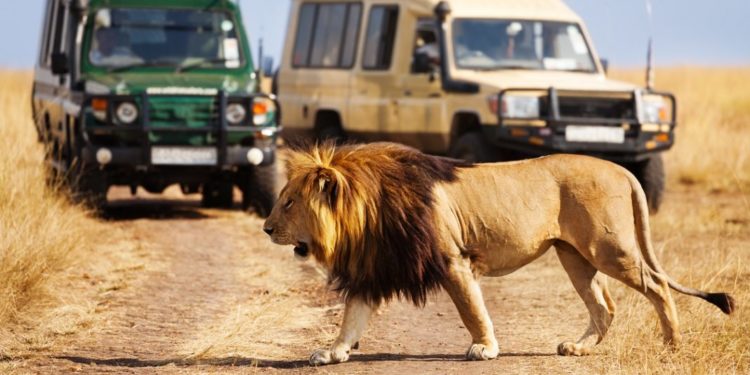Kenya, celebrated for its breathtaking landscapes, diverse wildlife, and vibrant culture, has long been a premier destination for tourists worldwide. However, recent political unrest and ongoing protests have significantly impacted the tourism sector, leading to economic repercussions and operational challenges for businesses reliant on this vital industry.
Many international tourists, wary of potential safety risks, have canceled their trips, leading to a noticeable decline in arrivals. This is particularly disheartening during peak seasons, such as the annual wildebeest migration in the Maasai Mara, which typically draws large crowds.
Adding to the challenges, the increase in Maasai Mara’s park fees from $70 to $200 per person has led to a notable shift in tourist behavior, with many opting for Tanzania’s Serengeti National Park, which maintains lower entrance fees of about $70. This shift has had several impacts on the Maasai Mara tourism sector.
“Luxury lodges in Maasai Mara, such as Angama, Mahali Mzuri, Sarova Mara Camp, and Ol Seki Hemingways Mara, report being fully booked, indicating that high-end travelers continue to patronize these facilities. Overall bed occupancy stands at 70%, and while luxury lodges are doing well, other accommodations are struggling,” said Harrison Nampaso, Chairman of the Mara Managers Association.
Fred Odek, Chairman of the Kenya Association of Tour Operators and Kenya Tourism Federation, acknowledged that arrivals are lower than in previous years, attributing it to the increased park fees.
Joseph Kithitu, Managing Director of Hemingways Travel, noted that “anti-government protests and political demonstrations have led to cancellations and affected the number of tourists. High interest rates, unstable foreign currency, and exchange rate fluctuations have further constrained travel budgets for both domestic and international tourists”.
Speaking on Citizen TV, Lisa Kibutu, a Board Member of the Kenya Coast Tourism Association, highlighted Kenya’s competitive disadvantage compared to Tanzania. “Kenya has single-handedly boosted tourism for Tanzania and they’re improving their game; we are losing bookings and investments to them,” Kibutu stated.
“While cancellations have been minimal, there has been a stark absence of new business in the sector. Hotels in Diani, Watamu, and Malindi are experiencing an occupancy rate of 80 to 90 percent during what is considered the height of the peak season.” Kibutu added.


















